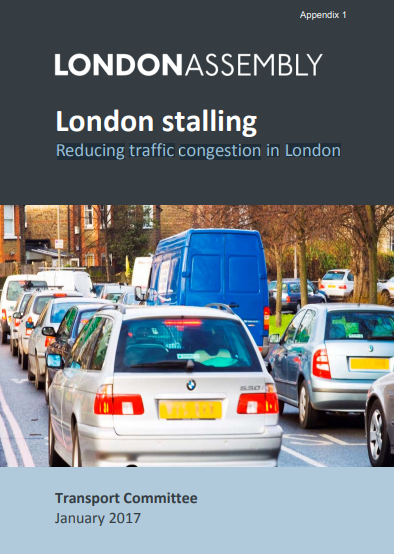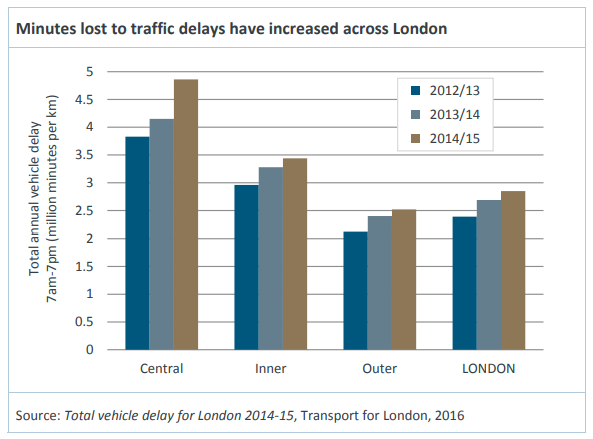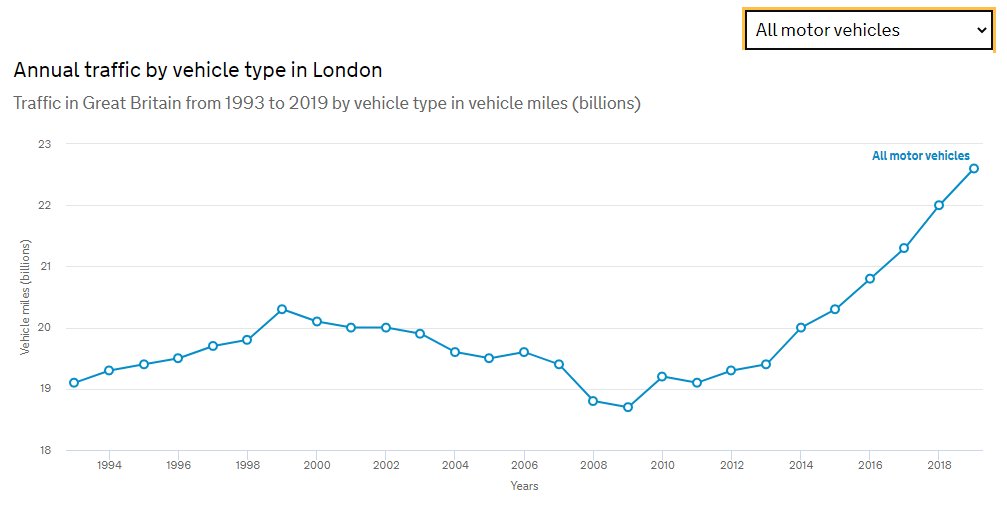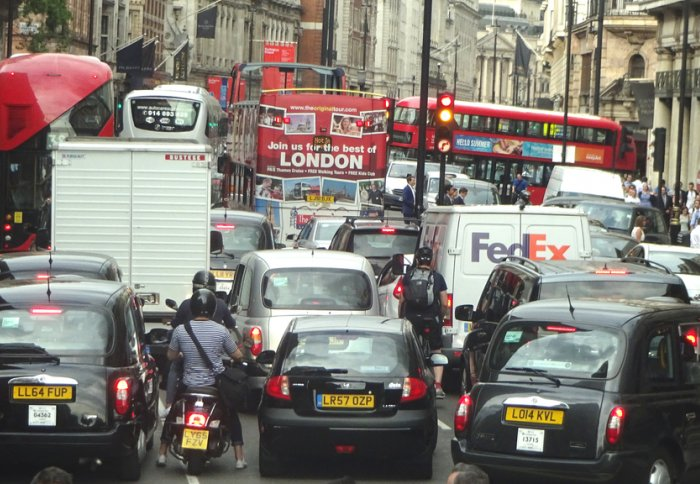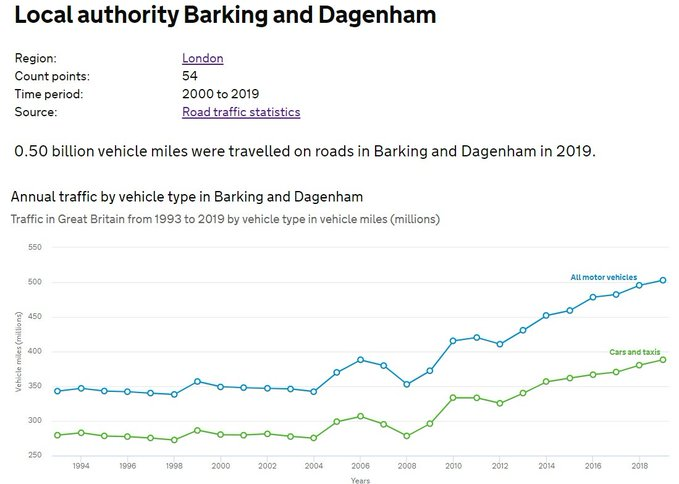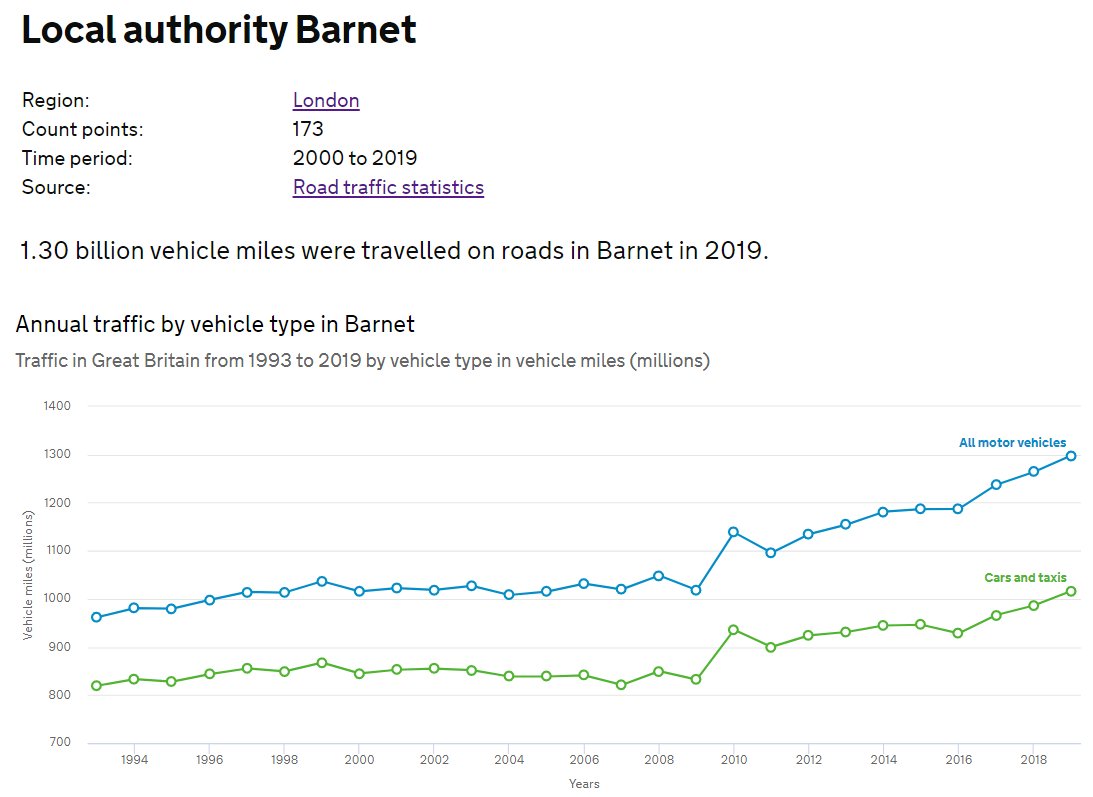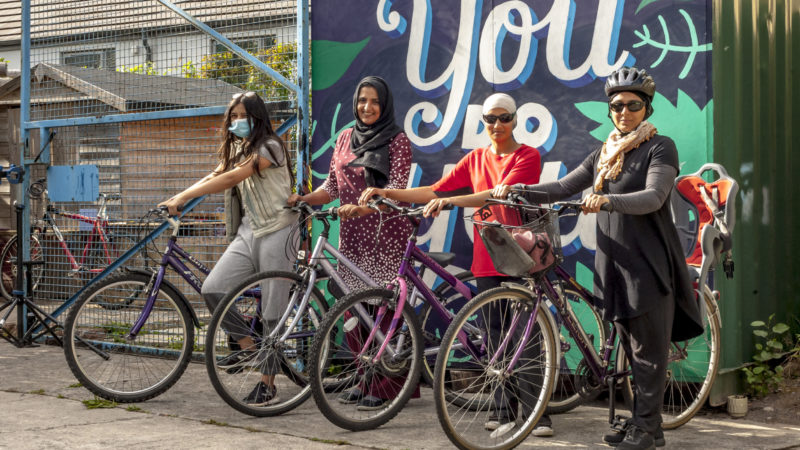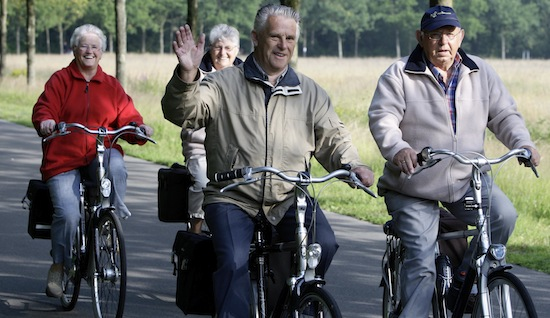
1/ Regardless of background, the closer people live to green space, the more likely they are to experience good physical/mental health, improving lives & reducing NHS costs.
THREAD on how we can address the 'green gap' & the climate crisis by radically reimagining our streets!
THREAD on how we can address the 'green gap' & the climate crisis by radically reimagining our streets!

2/ Unfortunately, 'minority ethnic and low-income families are significantly less likely to have access to green space.' (More green space is linked to less stress in deprived communities, Landscape and Urban Planning, 105(3), 221–229; England's Green Space Gap - @friends_earth)
3/ So, in addition to the environmental necessity of investing in green infrastructure, there is also a strong social & public health case for expanding access to green space. In London, the scope for this appears limited, but that's because we're looking in the wrong places.
4/ Even if there were vast tracts of brownfield land ripe for conversion to parks - which there are not - that may not meaningfully reduce the distance many people are living from green spaces. We need to bring parks to the people, not people to the parks.
5/ Fortunately, in London there is a huge, untapped land resource, currently monopolised by one group of residents to the exclusion of others, which is waiting to be reimagined. Yes, you guessed it - our roads.
In fact, there's almost 15,000km of them in the capital.
In fact, there's almost 15,000km of them in the capital.
6/ At the moment, those 15,000km of roads are used for the movement/storage of motor vehicles, which contributes to increasing inactivity, social alienation, emissions, and air pollution. What if we could address the the green space deficit and motor vehicle dominance together?
7/ Well, we can. As I demonstrated through the design and funding of Hackney's first 21st Century Street, in Dalston - one of the most green space deficient areas of Inner London - it's possible to do both...
https://twitter.com/jonburkeUK/status/1225126564616187905
8/ By exchanging space that has primarily been used by drivers in recent decades, with a non-exclusionary neighbourhood park, featuring play infrastructure immediately in front of a school, Hackney will achieve the following...
https://twitter.com/jonburkeUK/status/1328414126356525058
9/ Although designs would need to vary between 'street end' neighbourhood parks and build-outs into one lane of the public carriageway, a 21st Century Street on every residential road in Hackney would hand everyone a neighbourhood park and eliminate circa 20,000 parking spaces.
10/ If we extended this scheme to the whole of London, we could remove 1.5m of the capital's 6.8m parking spaces, reducing land transport emissions by constraining car growth, while enabling safe (socially-inclusive) play, walking, & cycling through beautification of our streets.
11/ The capital cost of such a scheme would be circa £6 billion - or three Silvertown Tunnels. Given the high labour-intensity of highways and landscaping, much of that investment would accrue to SMEs and workers, not shareholders or Big Construction.
12/ With an assumed fiscal multiplier of 1.6 for capital spending - based on World Bank data - and the high accrual rate to labour, 21st Century Streets for London would generate £8.4 billion of economic activity, putting money into the tills of London's shops...
13/ ...aiding a sustainable, post-Covid recovery, while also reducing emissions in line with the Govt's legally-binding decarbonisation targets. And, fortunately, we don't have to speculate about the benefits of such schemes. The concept is already proven.
https://twitter.com/jonburkeUK/status/1362108427883929603
14/ ...and, indeed, is being rapidly adopted by visionary city leaders all over the globe... dezeen.com/2019/06/26/par…
15/ London has lagged behind other world cities on liveability for decades. Now that people will increasingly no longer need to live in the capital in order to work here, municipal leaders need to give them a reason to stay, as I note here... ft.com/content/d7c6cd…
16/ In addition to the social, public health, & decarbonisation benefits of radically reimagining London's public realm, appropriate specimen selection and hardstanding removal would deliver huge biodiversity and cooling benefits in a rapidly warming city.
https://twitter.com/jonburkeUK/status/1200459837643087872
17/ 21st Century Streets is the kind of Green New Deal project that the Chancellor should be funding. We can address unequal access to green space and ballooning transport emissions by reallocating the billions set aside for new roads to the transformation of our existing ones.
• • •
Missing some Tweet in this thread? You can try to
force a refresh

